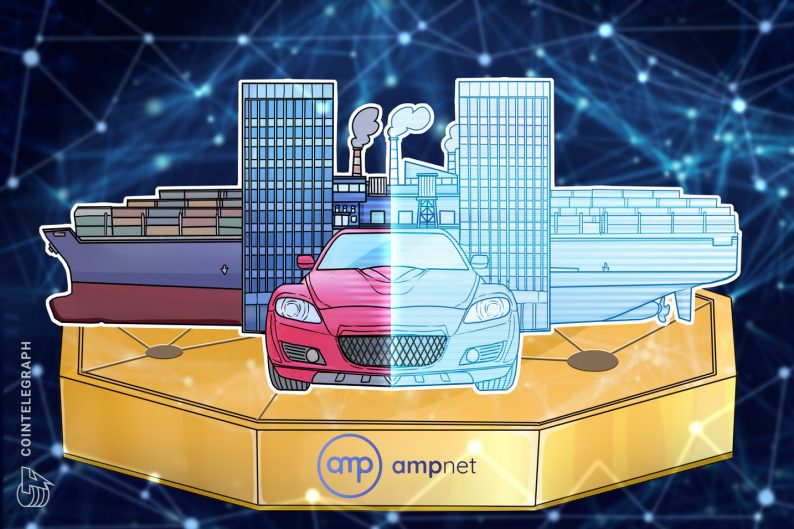Tokenization platforms are “overwhelmingly centralized” and lack the scalability needed to be a force in the open finance movement, according to developers behind a new protocol.
AMPnet says there is no shortage of innovative projects that are making their vision for a more inclusive financial future — but crucial pieces in the puzzle are currently missing.
“Houses, apartments, renewable energy power plants, land, traditional financial instruments, company equity and much, much more are all locked away — not to be used or seen by the blockchain market. Five hundred trillion dollars in assets — just waiting to be brought to the open finance movement,” AMPnet’s founders said.
Right now, many of the companies operating in this space promise to mint tokens that are equivalent to a real-world asset. This effectively means that crypto enthusiasts need to find projects they trust, and complete extensive amounts of vetting and legal compliance to verify that the tokens they receive are actually backed on a one-to-one basis.
A new approach
AMPnet’s APX Protocol enables thousands of fully independent tokenization platforms to use a common protocol for continuous, trustless verification of tokenized assets.
This effectively means that existing real estate companies, crowdfunding platforms, venture capital firms or private individuals can easily convert their real-world assets into blockchain tokens.
AMPnet uses a proof-of-stake consensus layer to coordinate a group of independent, decentralized auditors — who are tasked with assigning risk and complexity scores to the tokenization platforms who use APX, and with reporting anything that appears suspicious. All tokenization platforms also need to hold some of their funds in a mandatory liquidation reserve, with the exact figure based on their risk score. This is said to enable crypto enthusiasts to recoup some of their funds in the event that something goes wrong.
All of the tokenized assets that are generated using APX can subsequently be traded in a decentralized, permissionless way through a dedicated DEX. Specialized features are set to include the ability to filter tokens by their asset class, country of origin and legal structure. Another filter that highlights projects based on their risk score will be ideal for those who are seeking to build a diversified portfolio.
AMPnet also aims to deliver flexibility — and the freedom to use other decentralized exchanges — by ensuring APX-verified assets can be wrapped as freely tradable ERC-20 tokens. Known as “trusted synthetics,” these tokens can then be traded and staked on any DeFi protocol without limitations.
More insights from AMPnet AMPnet
Build your own
AMPnet also wants to simplify the process associated with building a tokenization platform in the first place — ensuring that anyone can create their own compliant environment in a matter of minutes. Developers have compared this streamlined process to the way that Substrate allows new Polkadot blockchains to be created effortlessly.
Greenpeace Greece is one of the organizations that has already started to make full use of this infrastructure — enabling people who are concerned about the climate crisis and care for the environment to invest in a number of clean energy projects. The nonprofit has started Genervest, an AMPnet-powered, online crowdinvesting platform.
Available on the web, as well as through dedicated apps for iOS and Android, AMPnet is a white-label solution — and this means that users can add their own logos and domains before easily integrating the platform into their existing websites.
Customers can be onboarded within minutes, complete with ID scanning, facial recognition and Know Your Customer/Anti-Money Laundering checks. From here, legally valid digital signatures can be generated for signing investment projects. The platform also generates downloadable PDF reports to keep track of how a fund is performing — delivering tax records, project analytics and marketing tools.
AMPnet’s founder and CEO, Mislav Javor, told Cointelegraph: “Before Uniswap, providing liquidity was reserved for large investment banks. After Uniswap, anyone with extra coins and enough willpower could participate in decentralized exchange market making.
“AMPnet aims to do the same with auditing real-world assets. A job once reserved for ‘the Big Four’ of auditing will become available to anyone with enough time and willpower. Just like blockchain, their coordination is encoded in the protocol, their incentives are monetary and acting against the interests of the protocol will be an expensive endeavor.”
Learn more about AMPnet
Disclaimer. Cointelegraph does not endorse any content of product on this page. While we aim at providing you all important information that we could obtain, readers should do their own research before taking any actions related to the company and carry full responsibility for their decisions, nor this article can be considered as an investment advice.



Leave A Comment